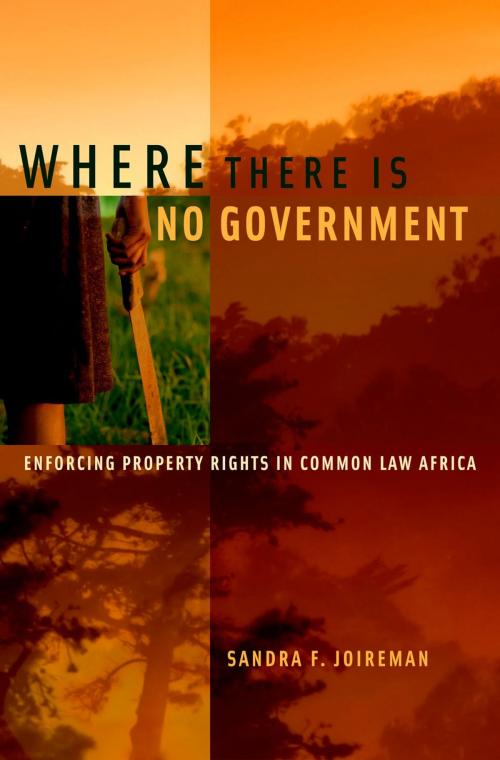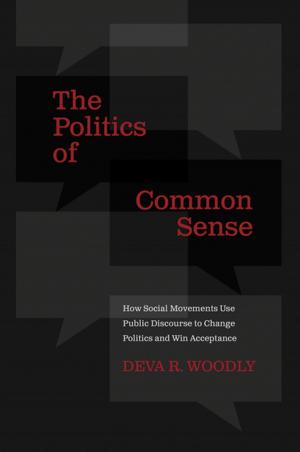Where There is No Government
Enforcing Property Rights in Common Law Africa
Nonfiction, Reference & Language, Law, Property, Social & Cultural Studies, Political Science, Government, Social Policy| Author: | Sandra F. Joireman | ISBN: | 9780190208462 |
| Publisher: | Oxford University Press | Publication: | July 25, 2011 |
| Imprint: | Oxford University Press | Language: | English |
| Author: | Sandra F. Joireman |
| ISBN: | 9780190208462 |
| Publisher: | Oxford University Press |
| Publication: | July 25, 2011 |
| Imprint: | Oxford University Press |
| Language: | English |
It is safe to say that a sizeable majority of the world's population would agree with the proposition that that property rights are important for political and social stability as well as economic growth. But what happens when the state fails to enforce such rights? Throughout sub-Saharan Africa, this is in fact an endemic problem. In Where There is No Government, Sandra Joireman explains how weak state enforcement regimes have allowed private institutions in sub-Saharan Africa to define and enforce property rights. After delineating the types of actors who step in when the state is absent--traditional tribal leaders, entrepreneurial bureaucrats, NGOs, and violent groups--she argues that the institutions they develop can be helpful or predatory depending on their incentives and context. Because such institutions are neither inherently good nor inherently bad, Joireman develops a set of measurement criteria to assess which types of property regimes and enforcement mechanisms are helpful and which are harmful to social welfare. By focusing on the varieties of property rights enforcement in Ghana, Kenya and Uganda, Joireman moves beyond simply evaluating the effectiveness of official property rights laws. Provocatively, she also challenges the premise that changes in property law will lead to changes in property rights on the ground. Indeed, states that change their property laws face challenges in implementation when they do not control the authority structures in local communities. Utilizing original research on the competitors to state power in Sub-Saharan Africa and the challenges of providing secure and defensible property rights, Where There is No Government is a sharp analysis of one of the most daunting challenges facing the African subcontinent today.
It is safe to say that a sizeable majority of the world's population would agree with the proposition that that property rights are important for political and social stability as well as economic growth. But what happens when the state fails to enforce such rights? Throughout sub-Saharan Africa, this is in fact an endemic problem. In Where There is No Government, Sandra Joireman explains how weak state enforcement regimes have allowed private institutions in sub-Saharan Africa to define and enforce property rights. After delineating the types of actors who step in when the state is absent--traditional tribal leaders, entrepreneurial bureaucrats, NGOs, and violent groups--she argues that the institutions they develop can be helpful or predatory depending on their incentives and context. Because such institutions are neither inherently good nor inherently bad, Joireman develops a set of measurement criteria to assess which types of property regimes and enforcement mechanisms are helpful and which are harmful to social welfare. By focusing on the varieties of property rights enforcement in Ghana, Kenya and Uganda, Joireman moves beyond simply evaluating the effectiveness of official property rights laws. Provocatively, she also challenges the premise that changes in property law will lead to changes in property rights on the ground. Indeed, states that change their property laws face challenges in implementation when they do not control the authority structures in local communities. Utilizing original research on the competitors to state power in Sub-Saharan Africa and the challenges of providing secure and defensible property rights, Where There is No Government is a sharp analysis of one of the most daunting challenges facing the African subcontinent today.















